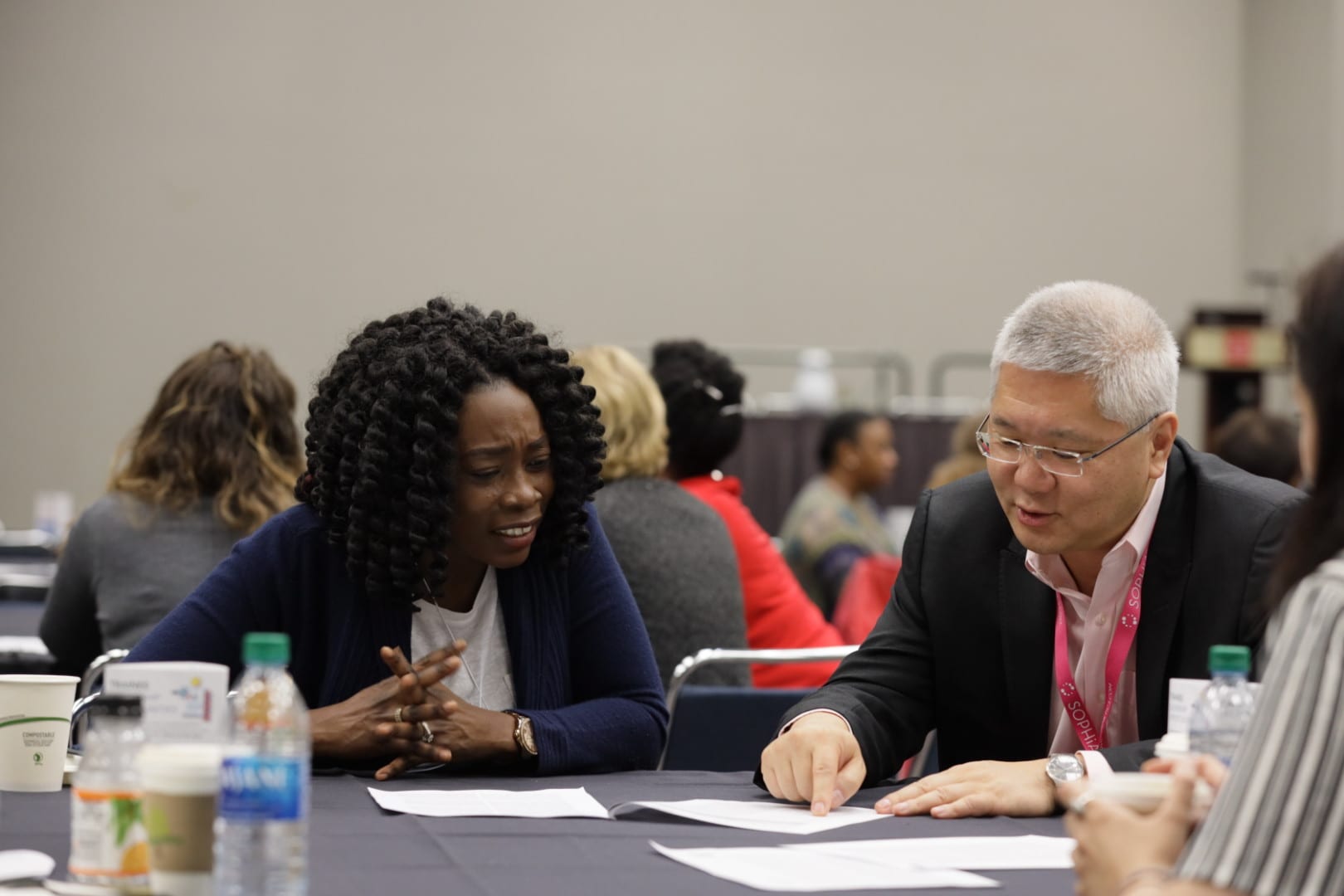Posted By: Ann Klinck, Communications & Marketing Assistant, ASHG
The 8th Annual Diversity Breakfast at ASHG 2019, an annual event celebrating the diverse and global human genetics community, featured thoughtful discussion around unconscious bias and microaggressions.
Presenter Fuki M. Hisama, MD, started the conversation by describing how unconscious bias affects decision-making and behavior. Two types of inter-group bias express themselves: explicit and implicit bias.

Explicit bias—consciously endorsed, personal beliefs about a type of person—has been decreasing over the last several decades. Implicit or unconscious bias, however, remains prevalent, and is most often seen through habits and attribution of qualities to members of a certain category of people, such as through race, gender, religion, or ethnicity. It can start very early in life. Dr. Hisama shared a personal anecdote of playing with her two-year-old relative, who confused her for a maid because of her dark hair and eyes.
While implicit biases can be positive or negative, Dr. Hisama described a few studies showing their negative impact on minority medical professionals.
A study in 2012 surveyed 127 professors at three large public and three private institutions. Professors were provided resumes/CVs that were identical except for the candidate’s name at the top, which was male in some cases and female in others. Despite having identical qualifications, the male candidates were consistently ranked as more desirable to employ and at higher salaries.
Dr. Hisama referenced a 2018 paper that surveyed minority resident physicians on how often they were:
- Mistaken for a nurse, housekeeper, transport personnel, or interpreter
- Asked where they were from, and the speaker did not accept an answer such as “Texas”
- Told they speak English well
- Asked when they were going back to their country
- Told they were too young or pretty to be a doctor
This paper highlighted what microaggressions look like, how often they happen, and how they make the person on the receiving end perceive themselves as unworthy or “not good enough.” Dr. Hisama noted that while the person asking or saying the above remarks may not intend to offend the listener, intent and impact are quite different.
After given these examples of how people in science are affected by bias and microaggressions, attendees spent about 40 minutes discussing the cases at their tables. This event provided a safe space for trainees who are minorities to ask how others handle such situations, and share reasons not to ignore these comments, thereby sending the message that these behaviors will not be accepted. Dr. Hisama also provided Twelve tips for responding to microaggressions and overt discrimination: When the patient offends the learner.
In closing, Dr. Hisama reminded the audience of a quote from author James Baldwin, “Not everything that is faced can be changed, but nothing can be changed until it is faced.”
